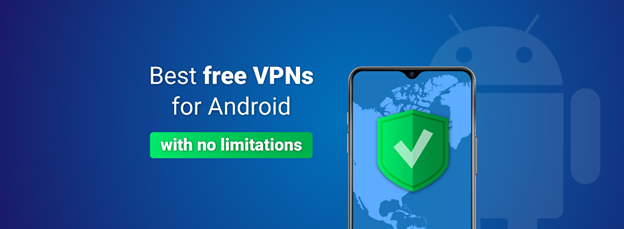Safe and Secure Online Android Free VPN
Are you looking for a reliable and free VPN for your Android device? Look no further! In this article, we will explore some of the best free VPN options available for Android users. These free VPNs offer a range of features and data allowances, making them ideal for light usage and specific needs. While a paid VPN plan may offer more comprehensive privacy and unlimited data, these free options can still provide a significant level of protection for your online activities.
Why Use a VPN on Your Android Device?
Before we dive into the best free VPN options for Android, let’s first understand why using a VPN on your device is essential. A VPN, or Virtual Private Network, encrypts your internet connection and routes it through a server in a location of your choice. This helps to protect your online privacy and security by masking your IP address and encrypting your data.
By using a VPN on your Android device, you can:
- Access geo-restricted content: With a VPN, you can bypass geo-blocks and access websites and services that may be restricted in your region.
- Protect your data: A VPN encrypts your internet traffic, making it difficult for hackers and cybercriminals to intercept your data.
- Maintain your privacy: By masking your IP address, a VPN helps to keep your online activities private and anonymous.
- Secure your connection: Public Wi-Fi networks are often unsecure, but with a VPN, you can encrypt your connection and browse safely on any network.
Now that we understand the importance of using a VPN on our Android devices, let’s explore some of the best free options available.
Top Free VPNs in 2024 Your Android Device
- ProtonVPN: Known for its strong security features and no-logs policy, ProtonVPN offers a free version with unlimited bandwidth. With servers in multiple countries, ProtonVPN is a reliable choice for users looking for privacy and speed.
- Windscribe: Windscribe’s free plan includes 10GB of data per month and access to servers in over 10 countries. With a user-friendly interface and strong encryption, Windscribe is a popular choice for casual VPN users.
- TunnelBear: TunnelBear offers a free plan with 500MB of data per month, perfect for light users. With servers in over 20 countries and a simple interface, TunnelBear is a great option for those new to VPNs.
- Hide.me: Hide.me provides a free plan with 2GB of data per month and servers in five locations. With strong encryption and a no-logs policy, Hide.me is a solid choice for users concerned about privacy.
Should You Upgrade to a Paid Plan?
While these free VPN options for Android offer a range of features and data allowances, they may not be suitable for heavy users or those who require unlimited data. If you find yourself needing more comprehensive privacy and unlimited data, you may want to consider upgrading to a paid VPN plan. Paid plans often offer additional features such as ad-blocking, faster connection speeds, and access to a wider range of servers.
In conclusion, using a VPN on your Android device is essential for maintaining your online privacy and security. These free VPN options offer a great starting point for Android users who need a basic level of protection for their online activities. Remember to choose a VPN that meets your specific needs and preferences, whether it’s unlimited data, access to geo-restricted content, or fast connection speeds. Stay safe and secure online with a free VPN for Android!
10 Basic Question VPN Android Device

1. What is a VPN and how does it work on Android?
Answer: A Virtual Private Network (VPN) is a service that encrypts your internet connection and routes it through a secure server in another location. This masks your IP address and makes it appear as if you are browsing from that server’s location, enhancing your online privacy and security. On Android, you can install a VPN app, configure the settings, and connect to a VPN server to protect your data and access geo-restricted content.
2. Why should I use a VPN on my Android device?
Answer: Using a VPN on your Android device provides several benefits:
- Privacy: Hides your IP address and encrypts your data, preventing ISPs, hackers, and third parties from tracking your online activities.
- Security: Protects your data, especially when using public Wi-Fi networks, by encrypting your internet connection.
- Access Restricted Content: Allows you to bypass geo-restrictions and access content that may be blocked in your region, such as streaming services and websites.
- Avoid Censorship: Helps you access blocked websites and services in countries with strict internet censorship.
3. Are free VPNs for Android safe to use?
Answer: Not all free VPNs are safe. Some free VPNs may have security flaws, limited features, or might log and sell your data to third parties. However, reputable free VPNs like ProtonVPN, Windscribe, and TunnelBear offer good security and privacy protections. It’s important to choose a trusted provider and read reviews to ensure the VPN you choose is reliable and secure.
4. What are the limitations of free VPNs for Android?
Answer: Free VPNs often come with certain limitations, including:
- Data Caps: Limited amount of data usage per month (e.g., 500 MB to 10 GB).
- Speed: May offer slower connection speeds compared to premium versions.
- Server Locations: Fewer server options and limited geographic locations.
- Features: Basic security features, with advanced options reserved for paid plans.
- Ads: Some free VPNs display ads to support the free service.
5. How do I install a VPN on my Android device?
Answer: Installing a VPN on your Android device is straightforward:
1. Choose a VPN Provider: Select a reputable VPN provider and sign up for a free or paid plan.
2. Download the App: Go to the Google Play Store and download the VPN app.
3. Install the App: Open the app and follow the installation instructions.
4. Log In: Enter your account credentials to log in.
5. Connect: Select a server location and tap the “Connect” button to start using the VPN.
6. Can I use a VPN to access Netflix and other streaming services on my Android device?
Answer: Yes, a VPN can help you access geo-restricted content on Netflix, Hulu, Amazon Prime Video, and other streaming services. However, not all VPNs work with every streaming service due to efforts by these services to block VPNs. Reputable VPNs like ProtonVPN, Windscribe, and TunnelBear have been known to bypass geo-restrictions successfully.
7. Does using a VPN drain my Android device’s battery?
Answer: Using a VPN can slightly increase battery consumption because it requires continuous encryption and data routing. However, the impact is generally minimal. To minimize battery drain, choose a VPN with efficient performance and consider disconnecting the VPN when not needed.
8. Can I use a VPN on multiple devices?
Answer: Yes, most VPN providers allow you to use a single account on multiple devices simultaneously. Free plans may have limitations on the number of devices, while paid plans usually offer more flexibility. Check the terms of service of your VPN provider for specific details.
9. What should I look for in a VPN for Android?
Answer: When choosing a VPN for Android, consider the following factors:
- Security: Strong encryption (e.g., AES-256) and security protocols (e.g., OpenVPN, IKEv2).
- Privacy: No-logs policy to ensure your data is not stored or sold.
- Speed: Fast and reliable connections for smooth browsing and streaming.
- Ease of Use: User-friendly app with a straightforward interface.
- Server Locations: Wide range of server locations to access global content.
- Customer Support: Responsive customer support for troubleshooting and assistance.
10. Is it legal to use a VPN on Android?
Answer: In most countries, using a VPN is legal. However, some countries with strict internet regulations, such as China, Iran, and North Korea, have restrictions on VPN usage. Always check the local laws and regulations regarding VPN use in your country to ensure compliance.



